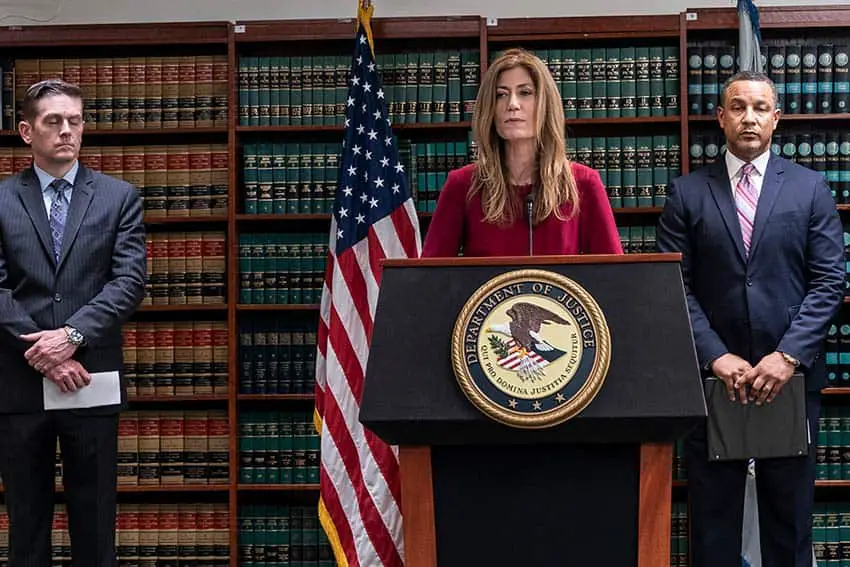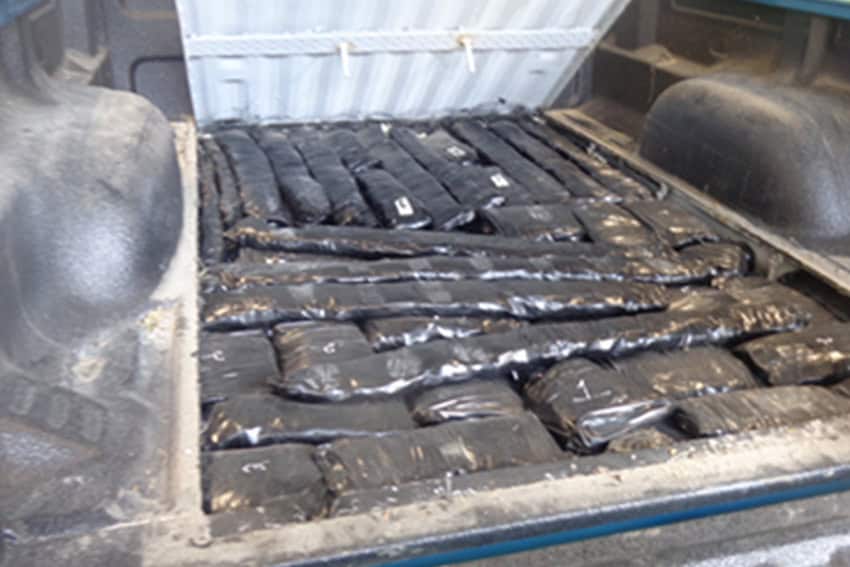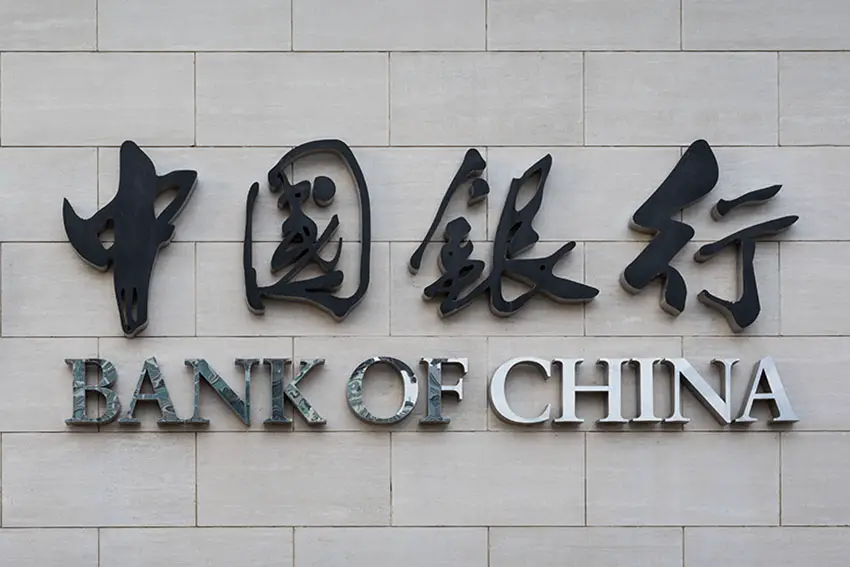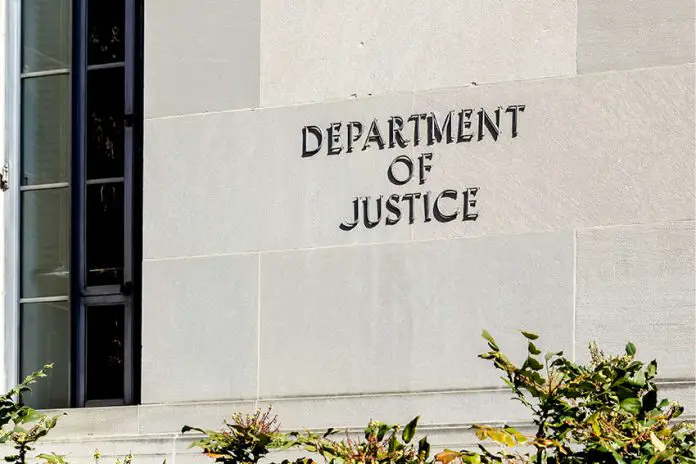The Justice Department in the United States has charged 24 people in connection with an alleged Sinaloa Cartel drug trafficking and money laundering conspiracy involving Los Angeles-based associates of the Cartel and groups linked to underground banking in China.
A superseding indictment, returned on April 4 and unsealed on Monday, according to a DOJ press release, charged the defendants with a mutually beneficial money laundering conspiracy to “aid and abet the distribution of cocaine and methamphetamine.”

It also charged defendants with conspiracy to “launder monetary instruments” and a conspiracy to “operate an unlicensed money transmitting business.”
The indictment is the result of a multi-year, multi-agency investigation dubbed “Operation Fortune Runner,” during which US $5 million in drug proceeds, firearms and significant quantities of narcotics were seized.
Drug Enforcement Administration chief Anne Milgram told a press conference on Tuesday that the investigation “shows that the Sinaloa Cartel has entered into a new criminal partnership with Chinese nationals who launder money for the cartels.”
During the conspiracy, “more than $50 million in drug proceeds flowed between the Sinaloa Cartel associates and Chinese underground money exchanges,” the DOJ said.
U.S. Attorney Martin Estrada said that at least 22 of the 24 defendants — some of whom face additional charges — have been arrested.
Twenty are expected to appear in court in Los Angeles in the coming weeks. If convicted on all charges, they face jail sentences ranging from a minimum of 10 years to a maximum of life.
The DOJ said that “Chinese and Mexican law enforcement informed United States authorities that those countries recently arrested fugitives named in the superseding indictment who fled the United States after they were initially charged last year.”

Mexico and China arrested one fugitive each, according to Homeland Security Advisor Liz Sherwood-Randall.
Exchanging dollars for pesos and yuan for dollars
In its statement, the DOJ said that “the Sinaloa Cartel is largely responsible for the massive influx of fentanyl into the United States over the past approximately eight years,” and noted that its criminal activities “generate enormous sums of U.S. currency in the United States that belong to the cartel in Mexico.”
“Profits from the drug trade must be repatriated to Mexico for use by the cartel,” the department said.
It noted that the superseding indictment alleges that “a Sinaloa Cartel-linked money laundering network collected and, with help from a San Gabriel Valley, California-based money transmitting group with links to Chinese underground banking, processed large amounts of drug proceeds in U.S. currency in the Los Angeles area.”
“They then allegedly concealed their drug trafficking proceeds and made the proceeds generated in the United States accessible to cartel members in Mexico and elsewhere,” the DOJ added.
The statement also said that lead defendant Edgar Joel Martinez-Reyes and others “allegedly used a variety of methods to hide the money’s source, including trade-based money laundering, ‘structuring’ assets to avoid federal financial reporting requirements, and the purchase of cryptocurrency.”
The DOJ said that Martinez-Reyes allegedly traveled to Mexico in January 2021 to meet with Sinaloa Cartel members “to strike a deal with money remitters with links to Chinese underground banking to launder drug trafficking proceeds in the United States.”
“After the deal was struck, the Sinaloa Cartel — through their connections and associates — distributed cocaine, methamphetamine and other narcotics, generating US dollars as drug proceeds,” the department said.
According to the press release, Martinez-Reyes and other conspirators allegedly then delivered the currency — “frequently in amounts of hundreds of thousands of US dollars in cash” — to other members of the Chinese underground money exchange and remitting organizations to be laundered for a fee that was lower than that charged by other launderers.
“The remitting organizations possessed large amounts of U.S. currency and could help wealthy Chinese nationals evade China’s currency controls,” the DOJ said.

In a “background” section of its press release, the DOJ said that Chinese underground money exchanges in the United States assist the Sinaloa Cartel and other criminal organizations to move their profits from the United States to Mexico “by providing a ready market for U.S. currency in the United States.”
“Many wealthy Chinese nationals who live, work, or invest in China wish to transfer assets to the United States for various reasons but are barred by the Chinese government’s capital flight restrictions from transferring the equivalent of more than $50,000 per year out of China,” the department said.
“These individuals seek informal alternatives to the conventional banking system to move their funds.”
The DOJ said that a China-based person who wishes to transfer money to the United States contacts an individual who is selling US dollars in the U.S. The currency vendor subsequently provides details for a bank account in China and instructs the China-based person to make a deposit in Chinese currency (renminbi). Once the owner of the account sees that the deposit has been made, an equivalent amount of US dollars is released to the buyer in the United States.
That money could be used to buy real estate in the United States or pay tuition, for example.
The DOJ noted that “the sellers of U.S. currency in the United States obtain dollars in a variety of ways,” including from drug traffickers.
Traffickers “increasingly have partnered with Chinese underground money exchanges to take advantage of the large demand for U.S. dollars from Chinese nationals,” it said.
“The funds that are transferred in China are then used to pay for goods purchased by businesses and organizations in Mexico or elsewhere, such as consumer goods or items needed to aid the drug trafficking organization to manufacture illegal drugs, such as precursor chemicals, including fentanyl,” the DOJ said.
Estrada, the U.S. attorney, described the situation as a “cycle of destruction.”
“The drugs being sold here in the United States are then being used to fund precursor chemicals which will be used to make even more drugs that are sent into our country,” he said.
Estrada said that the superseding indictment and the United States’ “international actions” show that the U.S. “will be dogged in our pursuit of all those who facilitate destruction in our country and make sure they are held accountable for their actions.”
